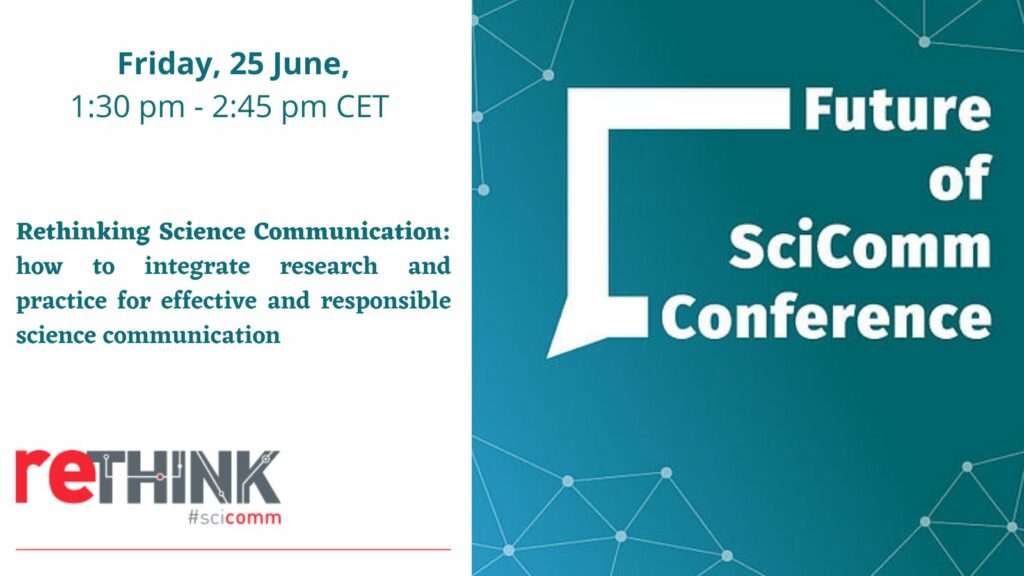RETHINK took part in the Future of Scicomm conference with the Workshop “Rethinking Science Communication – how to integrate research and practice for effective and responsible science communication”, led by Dr. Frank Kupper (Athena Institute for Research on Innovation and Communication in Health and Life Sciences, VU Amsterdam), Aleksandra Kowalska (Ecsite) and Dr. Birte Fähnrich (Berlin-Brandenburg Academy of Sciences and Humanities/Zeppelin University).

The Future of Science Communication Conference brings together European actors from research and practice of science communication. It is co-organised by Wissenschaft im Dialog, the organization for science communication in Germany, and ALLEA, the European Federation of Academies of Sciences and Humanities. In 2021 the conference took place online on 24-25 June.
The workshop dealt with questions of open science and participation by focussing on the field of science communication itself. In recent years, science communcation research and practice have developed significantly. However, platforms for mutual exchange and reflection of both fields have been rare. As a consequence, practice often does not reflect research based evidence and research overlooks concerns and challenges of the practice. We argue that science communication research and practice should jointly develop new forms of exchange, mutual reflection and participation as to enhance effective and responsible science communication.
To this end, the workshop presented a participatory format of research-practice interaction that has been developed and applied in seven European countries in the context of the Horizon 2020-funded project RETHINK. The format called RETHINKER spaces brings researchers and practitioners from different fields of science communication together to adress mutual expectations and needs. RETHINKER spaces are a valuable platform to gather data and to discuss research findings, also with regard to their applicablility to the day-to-day routines of science communicators.
During the workshop, we 1) shared insights and learnings, 2) asked participants to contribute their experiences and 3) used this as a starting point for a world cafe setting to develop new ideas on how to open up science communication research and practice in the future.
